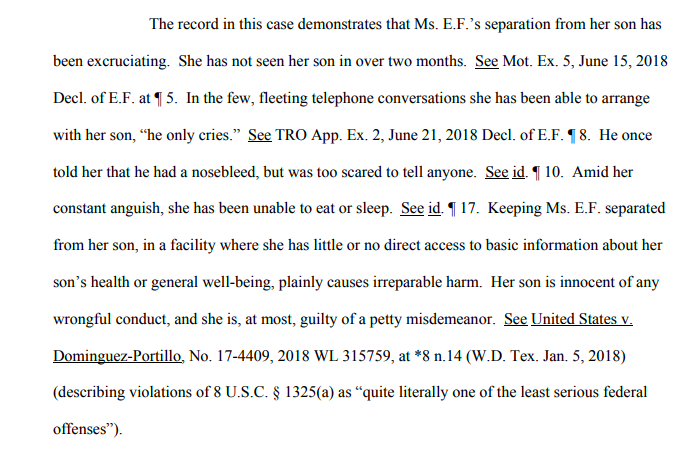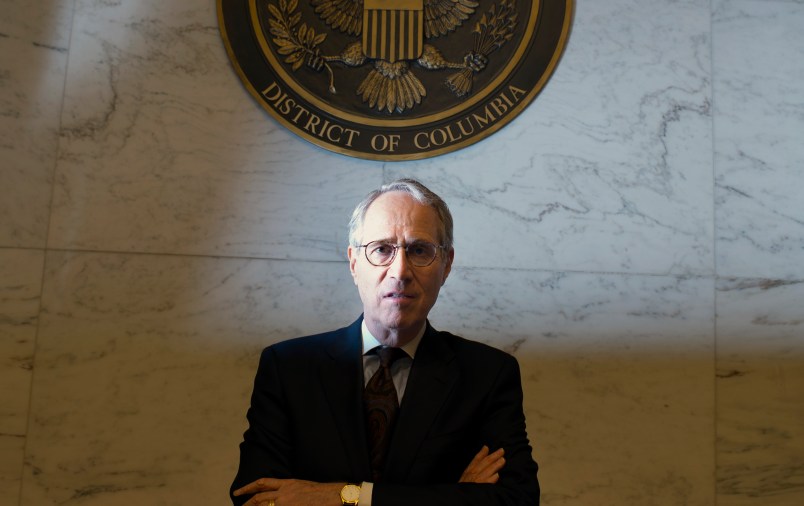The Trump administration’s uneven, foot-dragging compliance with court rulings against its immigration policies is having a ripple effect across the federal judiciary, prompting judges that previously gave the administration the benefit of the doubt to issue injunctions forcing the administration to speed up the reunification of the families it forcibly and unconstitutionally separated.
U.S. District Judge Edmond Chang in Chicago ruled on July 9 that the Trump administration must reunite within 72 hours a 9-year-old and a 16-year-old boy who were each separated from their fathers after crossing the U.S.-Mexico border in May. Though the two families are already entitled to reunification under a California judge’s order to reunite all separated families, Judge Change said the Trump administration’s missed deadlines, broken promises and lack of progress in the national class action case prompted him to step in.
“The solidity of the government’s prior representations that the deadlines will be met has waned,” he wrote. “In this situation, which all began with a chaotic circumstance of the Government’s own making, it is appropriate to consider Plaintiffs’ request for reunification with a skeptical eye to the government’s prior representations.”
This week, in Washington, D.C., U.S. District Judge Paul Friedman ordered the Trump administration to reunite one Guatemalan mother with her 9-year-old son by midnight on Friday, citing the “irreparable harm” the ongoing separation is causing the family.

Though the mother, identified by her initials E.F. to protect her identity, is only charged with a civil immigration violation and has no other criminal record, she has been kept in detention in El Paso while her son was held in a foster care facility New York, and she has not seen him since May 15.
The two other parents who sued the federal government in the D.C. case have been reunited with their children, but E.F. remains separated from her child.
Citing the Trump administration’s admission that it first deported and then lost track of at least a dozen parents while their children remained in the United States, Friedman also inserted into his order language banning the administration from deporting E.F. or either of the other two parents without his permission.
Friedman had originally held off on issuing a decision in this case, saying he would wait to see if the Trump administration was working in good faith to comply with Judge Sabraw’s order to reunite all families, including the three parents in the D.C. case. Echoing Judge Chang, Judge Friedman’s order this week cited the administration’s shortcomings as necessitating his intervention.
“At the hearing, defendants represented that they had provided, or would soon provide, certain information that plaintiffs had requested,” he wrote, referencing the Trump administration’s promises to provide E.F. and the other two parents the locations at which their children were being held, updates on their health and well-being, and more frequent telephone calls with them. Some of those promises were not fulfilled, the judge’s order indicated.
The Trump administration has argued to Friedman that the national injunction ordered by Judge Dana Sabraw in the Southern District of California would cover the families pleading with the D.C. court for relief. But Friedman noted in his ruling Wednesday that the administration blew past the deadline for reuniting children younger than 5, and repeatedly and unsuccessfully sought a deadline extension, making them an unreliable party in his case.
“Defendants previously have asked for partial relief from the timelines set in the class action,” he said. “The July 26, 2018 deadline for reunification, therefore, is not guaranteed.”
Friedman is similarly unsympathetic to the Trump administration’s argument that it is doing the best it can with limited resources and that further court orders would present a burden.
“Given the gravity of the harm at issue, the need to expend resources cannot outweigh these threats to constitutional rights,” he wrote. “The harm to defendants is self-inflicted: defendants embarked on a zero-tolerance policy, bringing misdemeanor charges and separating thousands of children from their parents, without a plan for reunification after the short, time-served sentences for improper entry into the United States.”
Read Judge Friedman’s ruling below:










